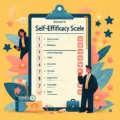Self-leadership is the practice of intentionally influencing your thinking, feeling, and behaviors to achieve your objectives. It’s a crucial skill for personal development and professional success. In this article, we delve into the self-leadership assessment, including its scale, analysis, and actionable tips to enhance your self-leadership abilities.
What is Self-Leadership?
Self-leadership refers to the ability to lead yourself towards your goals, manage your emotions, and stay motivated. It involves self-awareness, self-regulation, and self-motivation. By mastering self-leadership, individuals can improve their productivity, resilience, and overall well-being.
The Importance of Self-Leadership Assessment
Assessing your self-leadership skills is essential to understand your strengths and areas for improvement. A self-leadership assessment helps you identify your current capabilities and provides a roadmap for personal growth. It’s a reflective process that encourages you to take control of your personal and professional development.
Components of a Self-Leadership Assessment
A comprehensive self-leadership assessment typically includes the following components:
- Self-Awareness: Understanding your emotions, strengths, weaknesses, and values.
- Self-Regulation: Managing your emotions, behaviors, and impulses.
- Self-Motivation: Setting goals and staying motivated to achieve them.
- Self-Efficacy: Believing in your ability to succeed.
Self-Leadership Scale
The self-leadership scale is a tool used to measure your self-leadership abilities. It typically includes a series of statements that you rate on a scale from 1 to 5, with 1 being ‘strongly disagree’ and 5 being ‘strongly agree’. Here are some example statements:
- I set specific goals for my personal development.
- I regularly reflect on my strengths and weaknesses.
- I manage my emotions effectively in challenging situations.
- I believe in my ability to achieve my goals.
Analysis of Self-Leadership Assessment Results
Once you complete the self-leadership assessment, it’s time to analyze the results. Here’s how you can do it:
- Identify Patterns: Look for patterns in your responses to identify areas where you excel and areas that need improvement.
- Set Goals: Based on your assessment, set specific, measurable goals to enhance your self-leadership skills.
- Create an Action Plan: Develop a step-by-step plan to achieve your goals. Include strategies and resources that can help you improve.
- Monitor Progress: Regularly review your progress and adjust your action plan as needed.
Tips to Improve Self-Leadership
Improving your self-leadership skills takes time and effort. Here are some tips to get you started:
- Practice Self-Reflection: Regularly take time to reflect on your actions, emotions, and decisions.
- Set SMART Goals: Ensure your goals are Specific, Measurable, Achievable, Relevant, and Time-bound.
- Develop Emotional Intelligence: Work on understanding and managing your emotions.
- Seek Feedback: Ask for feedback from others to gain different perspectives on your behavior and performance.
- Stay Motivated: Find sources of inspiration and motivation that keep you focused on your goals.
FAQ
What is the purpose of a self-leadership assessment?
The purpose of a self-leadership assessment is to evaluate your ability to lead yourself effectively. It helps you understand your strengths and areas for improvement, providing a foundation for personal and professional growth.
How often should I conduct a self-leadership assessment?
It’s recommended to conduct a self-leadership assessment at least once a year or whenever you experience significant changes in your personal or professional life. Regular assessments help you stay on track with your goals and make necessary adjustments.
Can self-leadership be learned?
Yes, self-leadership can be learned and developed through practice. By focusing on self-awareness, self-regulation, and self-motivation, you can enhance your self-leadership skills over time.
What are some common self-leadership challenges?
Common self-leadership challenges include procrastination, lack of motivation, difficulty managing emotions, and setting unrealistic goals. Identifying these challenges is the first step towards overcoming them.
How can I stay motivated to improve my self-leadership skills?
Staying motivated requires finding sources of inspiration, setting achievable goals, and celebrating your progress. Surround yourself with supportive people and remind yourself of the benefits of strong self-leadership.









